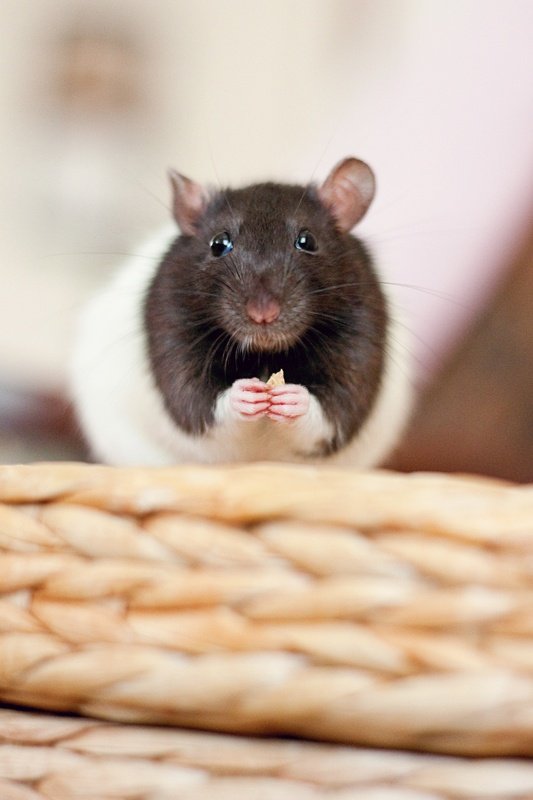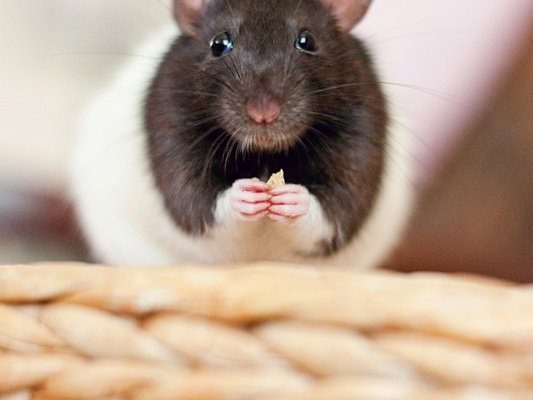
You might be wondering, “Is a hooded rat a good fit for my lifestyle?” That’s totally fair! In this article, we’ll break down everything you need to know about these charming rodents so you can make an informed decision. Think of it like a friendly chat over coffee where we explore the ins and outs of having a hooded rat as a pet.
The Personality of Hooded Rats
One of the biggest draws to hooded rats is their friendly nature. They’re typically curious and social, often seeking out human interaction. Imagine coming home after a long day, and there’s your rat, waiting to greet you with excitement. They can be trained to perform little tricks, and some even enjoy playing with toys or rolling in a hamster ball.
On the flip side, their social nature means they thrive on interaction. If left alone for long periods, they can become bored and even depressed. Here’s the thing: if you’re considering a hooded rat, it’s essential to be ready for some quality time together. They do best in pairs or small groups, so if you’re not home often, it might be wise to adopt more than one.
Are Hooded Rats Intelligent?
Yes! Hooded rats are surprisingly smart. They can learn tricks, recognize their owners, and respond to their names. If you enjoy engaging pets, a hooded rat might be your perfect companion. This intelligence also means you’ll need to keep their environment stimulating. Toys, climbing structures, and playtime are essential to keep their minds active.
However, with great intelligence comes a bit of mischief. Hooded rats can be surprisingly crafty, sometimes escaping their cages or finding ways to chew on things you’d rather they not. So, preparing your home for a curious little explorer is crucial.
Care Requirements
Caring for a hooded rat involves more than just feeding them. They require a spacious, secure cage that allows them to climb and play. A multi-level cage with plenty of bedding and toys is ideal for keeping them entertained. Here are some basic care tips:
- Provide a balanced diet. High-quality pellets and fresh fruits or vegetables are great options.
- Maintain clean bedding to keep them healthy and odor-free.
- Regularly check their health for any signs of illness.
Having a hooded rat also means you should be prepared for daily interaction. If you’re up for a snuggle session or some playtime, that’s fantastic! But if you’re often away or too busy to engage, this may not be the best pet for you.
The Cost of Owning a Hooded Rat
When thinking about getting a hooded rat, it’s essential to consider the costs involved. While they are generally inexpensive compared to other pets, there are still regular expenses. You’ll need to budget for:
- Cage and supplies: A good cage can cost between $50 to $150.
- Food and treats: Expect to spend around $10 to $20 a month.
- Vet visits: Regular check-ups and any potential health issues can add to your expenses.
While they may not break the bank, it’s wise to plan ahead to ensure you’re ready for these costs.
Health and Lifespan
Hooded rats typically live for about 2 to 3 years, which is relatively short compared to other pets. While they’re generally healthy, they can be prone to certain diseases like respiratory issues or tumors. It’s important to provide a *clean environment* and keep an eye on their health.
Regular veterinary check-ups can make a big difference in catching any potential problems early. And if you do notice any unusual behavior or symptoms, don’t hesitate to contact your vet. Remember, a healthy rat is a happy rat!
Common Health Issues
Here are some common health concerns to be aware of with hooded rats:
- Respiratory issues: Keep their living area clean and well-ventilated.
- Tumors: These can be sadly common, especially as they age.
- Skin issues: Regularly check for signs of mites or allergies.
Understanding these potential health issues can help you provide the best care possible.
Socialization and Handling
Getting your hooded rat used to handling takes patience, but it can be a rewarding experience. Start by letting them sniff your hand, and then gradually work toward holding them. Rats are generally gentle, but they can be skittish at first. Here are some tips for successful socialization:
- Be gentle: Always approach them quietly and slowly.
- Use treats: Encourage them to come to you with their favorite snacks.
- Regular handling: Spend a little time every day interacting with them to build trust.
Once they’re comfortable with you, you’ll see just how affectionate a hooded rat can be. They often enjoy cuddling and being around their humans.
Final Thoughts: Is a Hooded Rat Right for You?
Bringing a hooded rat into your life can be a delightful adventure. However, it’s not a decision to take lightly. Evaluate whether your lifestyle aligns with their needs for companionship, mental stimulation, and proper care.
If you’re looking for a pet that’s low on maintenance but high on personality, a hooded rat could be perfect for you. Just remember that they thrive on social interaction and will need you to be a part of their little world.
Ultimately, the joy they bring can be well worth the effort, making your home a little livelier and filled with love. If you think you can meet their needs, you may just find that a hooded rat becomes an irreplaceable part of your family.

